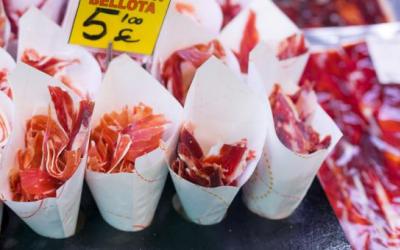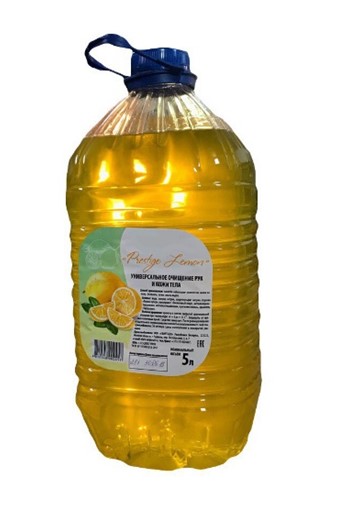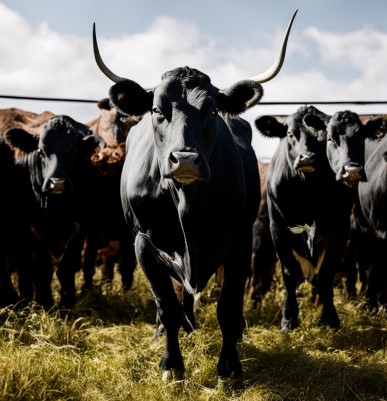A year-round conveyor belt for growing vegetable crops has been formed in Dagestan

The natural and climatic conditions of the south of Dagestan allow for the cultivation of cabbage and other vegetable crops all year round.
These days, cabbage is being harvested in the fields of the villages of Velikent, Khazar, Dzhalgan and a number of other settlements in the Derbent district . The first deputy minister of agriculture and food of the RD Sharip Sharipov, accompanied by the HEAD of the district agricultural department Yusif Gereikhanov and the DIRECTOR of the Dagestan experimental station - a branch of VIR, professor Kishtili Kurkiyev, familiarized himself with the progress of the work.
Salman Khalikov from the village of Khazar is engaged in growing white cabbage. In this matter, he closely cooperates with scientists from the Timiryazev Academy and the breeding and seed company "Poisk". According to him, hybrids of domestic selection show themselves very well in the conditions of Dagestan.
A long-time farmer Arif Yakubov from the village of Dzhalgan noted that the vegetable harvesting is in the active phase. His farm has an area of about 80 hectares under vegetables, including 20 hectares under Chinese cabbage, 20 hectares under green crops and the remaining area under white cabbage.
As noted by the head of the USKH Yusif Gereikhanov, large areas of various vegetable crops are also in the village of Muzaim. "In general, Chinese cabbage is grown on an area of almost 350 hectares in the district, and the number of people wishing to engage in this crop is growing every year. There are another 250 hectares of white cabbage. Currently, 5 to 10 trucks loaded with high-quality vegetable products leave the Derbent district for different regions of the country per day," said Yusif Gereikhanov. The director of the Dagestan branch of VIR Kishtili Kurkiyev
also spoke about scientific affairs . Cooperation has been established with scientists from the Timiryazev Academy and the Poisk breeding and seed company. New hybrids and varieties are being tested in our conditions as part of the federal scientific and technical program. According to him, more and more vegetable growers are becoming convinced of the benefits of working with domestic seeds. Following the trip, Sharip Sharipov noted that Dagestan is a region with unique natural and climatic conditions that allow cultivating vegetables in open ground and in the off-season. Starting from December until the end of February, Dagestan cabbage, celery and other vegetables will be shipped directly from the fields to consumers' tables in the winter.
"Today, in winter, we are harvesting cabbage and other vegetable crops in our republic. This is a very serious competitive advantage. We supply high-quality, environmentally friendly products to consumers' tables directly from the fields in winter, because during the cold period there is no need to treat crops against pests, weeds, and accordingly, the demand for Dagestan vegetables is very high in the regions of RUSSIA. We see that a year-round conveyor for the production of different types of cabbage has practically been formed in Dagestan. Moreover, the range of cabbage is also expanding. Derbent farmers have been cultivating Chinese cabbage for ten years now, and have now also begun to grow kohlrabi. "We must say a huge thank you to Alevdin Abakarov from the village of Muzaim, Arif Yakubov from the village of Dzhalgan, Salman Khalikov from the village of Khazar, Merdan Zokhrabov from the village of Velikent and many other vegetable growers who today demonstrate efficient use of land," the First Deputy Minister noted. As part of the instructions of the Dagestan leadership to improve the rational use of agricultural land, we will help farmers who work so diligently in expanding the areas of assigned land.
He further noted that the Russian Ministry of Agriculture pays attention to and supports Dagestan's efforts to resolve import substitution issues in the agricultural sector. The Dagestan leadership is also helping farmers in every possible way to solve this problem. The Republic intends to make full use of its potential in the direction of producing early and ultra-early vegetables. In recent years, the Dagestan Ministry of Agriculture has managed to attract reputable Russian science to Dagestan's vegetable fields.
"Today, at many sites in various vegetable-growing villages of Dagestan, scientists from the Timiryazev Academy, the Poisk company, and other scientific structures are working closely with our farmers. Test sites have been organized to demonstrate convincing evidence to vegetable producers in the republic in favor of using domestic seeds. And many Dagestani farmers choose domestic varieties and hybrids, which sometimes surpass imported analogues in quality and price," noted Sharip Sharipov.
Read together with it:
- Zelensky imposed sanctions against de Gaulle's grandson, Mizulina, and the Hutsuls.Dozens of individuals and legal entities, including organizations operating in Crimea and a number of Moldovan citizens, have been hit by Ukraine's new sanctions , which Zelensky said were "destabilizing" the country. Ukrainian President Volodymyr Zelenskyy signed decrees on three new sanctions packages against RUSSIA. The documents were published on the HEAD of state's website. Among those affect...
- Качество куриного мяса в Нижегородской области вызывает опасения: выявлены сальмонеллы и листерииОсновные производители мяса в регионе — Павловская и Линдовская птицефабрики, однако последняя сталкивается с финансовыми трудностями. Григорьев отметил, что в 2022-2024 годах наблюдался рост цен на курятину, что положительно сказалось на модернизации производства. Директор нижегородского филиала ФГБУ «ВНИИЗЖ» Ирина Петрова сообщила, что в 2......
- Rising Meat Prices and Dairy Shortages in Greece: Causes and ConsequencesProblems in the dairy industry Dairy products are the basis of Greek cuisine and its variety includes yoghurts, cheeses , butter andIce cream . However, in recent years, the Greek dairy industry has been in crisis . A decline in the number of farmers and a decrease in the number of cows has led to a decrease in the volume of fresh MILK available for processing. This is creating a shortage, threate...
- The advanced farm of JSC "Gorodilovo" uses the work of scientists and rewards with a trip to the seaTopic newsHow knowledge of market conditions, achievements in genetics and modern technologies helped JSC "Gorodilovo" to become one of the best The President of Belarus expressed gratitude to agricultural workers in the MINSK region and Minsk district, as well as to the teams of six agricultural enterprises, including Gorodilovo JSC. This is not the first time the enterprise has received such a h...
- Construction of a full-cycle poultry farm worth 13.3 billion rubles to begin in KhabarovskThe new facility, scheduled to open in 2027, will have an annual capacity of 50,000 tons of live poultry MEAT and create 600 jobs in the region. The project will utilize modern advanced processing technologies developed by Russian specialists. Support from the Far Eastern Development Bank will also allow the company to receive tax breaks and other benefits, thereby increasing the self-sufficiency ...
- Перспективы отечественного рынка говядины остаются позитивными, несмотря на снижение поголовьяРоман Костюк, генеральный директор Национального союза производителей говядины, сообщил, что потребление говядины указывает на хорошие перспективы, хотя продолжающееся сокращение поголовья крупного рогатого скота создает риски увеличения зависимости от импорта. По его словам, главной проблемой является не рынок мяса, а сфера разведения скота, на которую не обращают внимание крупные инвесторы. .......
- Четыре хозяйства Томской области завершили уборку зерновыхВ четверку лидеров по темпам уборки вошли крестьянские фермерские хозяйства Ивана Сергеева из Кожевниковского района, Андрея Гордиенко из Томского района и Евгения Торопова из Молчановского района. СПК «Белосток» завершил уборку зерновых на участке площадью 600 га в Шегарском районе. По словам Ивана Сергеева, пшеница в этом году уродилась хорошая. Фермер выращивает сорта Ирень и Ликамеро, впервые ...



























































